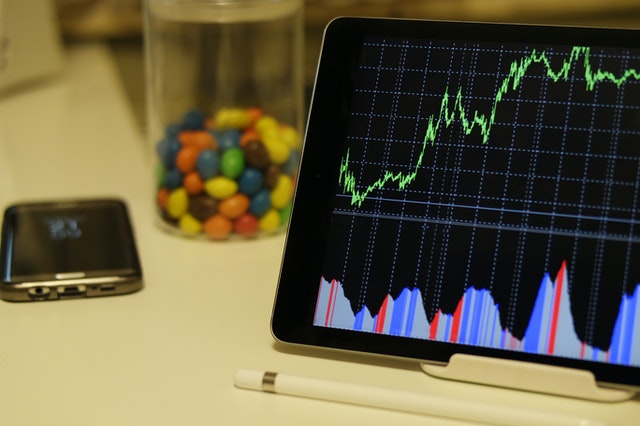Forex Trading Scams: How to Spot and Avoid Them in 2025
All products and services featured are independently selected by WikiJob. When you register or purchase through links on this page, we may earn a commission.
- A list of the Top Forex and CFD Brokers for January 2025:
- Description of the Best Forex and CFD Brokers for January 2025
- Why Is Forex Susceptible to Trading Scams?
- What Types of Forex Scams Are There?
empty
empty
empty
empty
empty
empty
empty
- How to Spot a Forex Scam in 2025
empty
- How to Protect Yourself from Forex Scams in 2025
- Frequently Asked Questions
- Final Thoughts
Forex trading involves buying and selling currency pairs based on the exchange rate. The exchange rate can be volatile and so buying and selling currency is unpredictable.
Currency trading has roots in ancient times, where goods and services were exchanged for coins – and coins were exchanged depending on their worth (usually related to the amount of gold/silver each coin was made from).
In the late 1990s, forex trading became open to retail traders – and with the equivalent of $5 trillion traded every day – 24 hours a day, 5 days a week, it is the most traded asset class in the world.
With a lack of regulation and so much money trading daily, traders can be targeted by scammers offering ways to make vast sums of money with little or no risk.
But how can you spot and avoid these scams? Find out below.
A list of the Top Forex and CFD Brokers for January 2025:
Description of the Best Forex and CFD Brokers for January 2025
1. Pepperstone
Pros
- Extensively regulated
- No minimum deposit
- Low fees and mostly free withdrawals
- Good customer service
Cons
- No investor protection for clients outside UK, EU and EEA
- Withdrawal fee for international bank wires
- CFDs only
Pepperstone is widely regarded as one of the top forex and CFD brokers, known for its competitive trading conditions, advanced platforms, and robust security measures.
Pepperstone is regulated by multiple top-tier financial authorities, ensuring a high level of security and compliance:
- Financial Conduct Authority (FCA) in the UK
- Australian Securities and Investments Commission (ASIC)
- Cyprus Securities and Exchange Commission (CySEC)
- Dubai Financial Services Authority (DFSA)
- Securities Commission of The Bahamas (SCB)
- Capital Markets Authority (CMA) in Kenya
- Federal Financial Supervisory Authority (BaFin) in Germany
- Dubai Financial Services Authority (DFSA) in Dubai
These regulations require Pepperstone to adhere to strict financial standards, including maintaining sufficient capital reserves, segregating client funds from operational funds, and undergoing regular audits.
Pepperstone implements several measures to protect its clients and prevent scams:
- Client Funds Segregation: Client funds are held in segregated accounts with tier-1 banks, ensuring they are kept separate from the company’s operational funds. This protects client money in the event of the broker’s insolvency.
- Negative Balance Protection: This feature ensures that clients cannot lose more money than they have deposited, providing an extra layer of security during volatile market conditions.
- Two-Factor Authentication (2FA): Pepperstone offers 2FA for added account security, requiring an additional verification step during login to prevent unauthorized access.
- SSL Encryption: All data transmitted between clients and Pepperstone’s servers is encrypted using Secure Socket Layer (SSL) technology, protecting sensitive information from being intercepted.
- Regular Audits and Compliance Checks: As a regulated entity, Pepperstone undergoes regular audits and compliance checks by regulatory authorities, ensuring adherence to industry standards and best practices.
2. eToro
Pros
- Regulated by FCA, ASIC
- No withdrawal fee for US clients
- 0% commission on stocks
- Social and copy trading
Cons
- Not available in every US State
- More expensive than most of its competitors
- No MetaTrader platforms
Below content does not apply to US users
Founded in 2007, eToro is considered a very low-risk broker as it is highly regulated by the Financial Conduct Authority (FCA) in the UK and many other regulatory bodies elsewhere.
Opening an account is free and you can access a $100,000 demo account to test the system.
It offers 47 currency pairs for trading. Spreads for forex trading have recently been significantly reduced and range from a very competitive 1 to 3 pips for major currency pairs.
Typical spreads for EURUSD and USDJPY trades, for example, are just 1 pip.
You can see the full list of spreads on the eToro website.
You’ll need to deposit a minimum of $200 for Copy Trading, eToro's standout feature which allows you to follow other traders and copy their trades.
This forex broker is great for beginners due to its user-friendly interface and app and 24-hour customer support. It allows you to trade currencies, stocks and cryptocurrencies in one portfolio and the Copy Trading system is a great way to learn.
The company also offers trading courses and features a Learning Lab which houses a variety of tools to support clients with their trading experience.
To find out more, read our eToro review.
61% of retail investor accounts lose money when trading CFDs with eToro. You should consider whether you understand how CFDs work, and whether you can afford to take the high risk of losing your money.
3. Plus500
Pros
- No buy/sell commissions and tight spreads
- Leverage of up to 1:30
- FREE unlimited Demo
- 2,800+ trading instruments
- Real-time quotes and advanced analytical tools
- Fast and reliable order execution
Cons
- No API integrations
- No social copy trading
Plus500 is a CFD provider and offers only CFDs.
Another user-friendly entry on our list of the best forex and CFD brokers in the UK is Plus500, providing an easy-to-use and accessible service.
You’ll find over 60 CFD currency pairs with competitive spreads, no commission and available leverage of up to 1:30.
Although MetaTrader and cTrader are not available, Plus500’s own platform is very user-friendly. It comes with a range of intuitive risk management features and is available on web and mobile.
Plus500 requires a minimum deposit of £100 if using a credit or debit card, and £500 if using bank transfer.
Plus500 UK Ltd authorized & regulated by the FCA (#509909).
4. IG
Pros
- Highly regulated
- MetaTrader 4 (MT4)
- Over 10,000 instruments
- Available in the UK and US
- 24/7 customer support
Cons
- High fees
- No deposit compensation scheme for US accounts
- No copy trading
- Inactivity fees
IG is a great share trading platform for beginners thanks to its user-friendly interface and extensive educational resources.
Pros of IG include a wide range of trading instruments and markets, as well as the ability to access multiple account types and trading platforms. The platform also offers a demo account for beginners to practise trading strategies before investing real money.
However, IG isn’t the cheapest share trading platform, with relatively high trading fees and a minimum deposit requirement of £250 when paying by credit/debit card or PayPal.
In terms of additional fees, IG charges a commission fee for share trading, starting from £8 per trade. There’s also a custody fee of 0.25% per year for holdings of £250 or more.
Overall, IG is a solid choice for beginners looking for a user-friendly platform with extensive educational resources, but investors should be aware of its fees and minimum deposit requirements.
Why Is Forex Susceptible to Trading Scams?
Forex is not very well regulated – in fact, the system relies on brokers to register themselves with self-regulatory bodies like the National Futures Association (NFA) or the Commodity Futures Trading Commission (CFTC).
The very nature of the volatile exchange rate makes it ripe for get-rich-quick scammers, offering 100% profit based on a ‘secret formula’.
Hedge fund managers, banks and investment management companies that have deep pockets to pay for PhD-qualified professional forex traders are often seen to make consistent money from their trades.
Inexperienced traders entering into the market might look for a reputable source of education, seeking to learn the secrets of the business so that they can emulate the large returns promised by ‘successful forex traders’.
Whether through ineptitude, poor information or trusting the ‘snake oil’ merchants, new traders need to remember that forex trading is not a source of overnight riches and that it is a zero-sum game – for someone to profit on a trade, someone else must make a loss.

What Types of Forex Scams Are There?
Point-Spread Manipulation
One of the ‘original’ scams, point-spread scams were computer manipulations of the bid-ask spread in the favour of the broker.
By increasing the spread between the bid and sell price to 7 or 8 pips (the smallest denomination of a currency, usually to 4 decimal places) instead of the more usual 2 to 3, the broker is able to make more money.
This practice has largely been clamped down on in the US, but offshore brokers might still operate these scams.
Automated Trading Programs (Robots/Expert Advisors)
Automated trading is aimed at newcomers to the forex trading market and is commonly referred to as robot trading or expert advisors.
These robots can undertake trades without human intervention, are easy to use and usually sell for only a few hundred dollars.
These systems have often not been submitted for any form of formal review or independent testing, and although they can be demonstrated on historical data, there is some suggestion that many robots may have been over-optimised or created to fit the data.
When looking at robots with an attractive win rate, be aware of scalping – multiple trades for tiny profits that make it look like the robot is wildly successful, but any good size loss would wipe out profits quickly.
Without knowledge of the algorithms used, traders cannot be sure that the robot is not just sending random buy/sell signals, making it difficult to trust.
Signal Sellers
In a similar way to EAs and robots, signal sellers offer a system to identify when to buy and sell currency pairs to make the most money.
Signal sellers can be retail traders, pooled asset managers, investment account companies or individuals. They normally offer long-term trading experience and successful trading abilities, convincing testimonials and promises of big profits to tempt the average trader.
Signal sellers offer tips in exchange for a daily, weekly or monthly fee. This process can be manual or automatic, based on technical analysis, breaking news or a combination of both.
Signal sellers can offer trading tips when you sign up with a specific broker, receiving a commission from the broker.
Of course, scam signal sellers will either take your money and disappear or offer you a few good tips before never being heard from again.
Fake/Unscrupulous Brokers
Unsuccessful brokers are not necessarily scammers; sometimes failure in a broker/trader relationship is down to the trader – either being too emotionally invested, not having a trading strategy or not understanding the market.
Of course, sometimes the broker is incompetent rather than unscrupulous – making mistakes rather than scamming traders.
Fake brokers, or those that are out to make money from traders without offering anything in return, usually fall into the following categories:
-
Price Slippage – In trading terms, price slippage is when the expected price of a trade is different from the actual price at the time it is sold. Sometimes this is a good result for the trader, other times it loses money. When a broker makes a trade, it offsets another position in the market to mitigate its risk, making the trade when the offset position is known. If the offset position is worse, the trader price is worse. However, if the offset position is better, the price for the trader should be better – but a scam broker will not pass this difference on to the trader.
-
Liquidity – When the broker does not have enough capital to cover trades. This is not a scam as such, but it is a sure-fire way for a trader to lose money. This leads to an increased risk of bankruptcy, risking the investment of the trader. Inept brokers might not have enough liquidity to run their business effectively, and this could be a problem for multiple withdrawals.
-
Churning – Individual brokers are often paid on commission, based on the number of trades that they make. This leads to unnecessary buy/sell actions to make more commission – known as churning. Churning negatively affects the trader and could lead to legal action being taken against the broker if it is regulated.
-
Commingling of Accounts – When accounts are managed, and control of money is taken from the trader, there is a risk that accounts will be commingled. In practice, this means that a trader will not be able to track the activity and performance of their funds as they will be combined with others – an ideal scenario allowing scamming brokers to ‘skim’ funds for their own purposes.
-
Unable to Withdraw – Having immediate access to any funds that are being looked after by a broker is important. Traders should make sure they know where their money is at all times. Not being able to access your money when you want to should be a big red flag – it could mean that the brokerage is not as liquid as it claims, or that the accounts have been commingled.
Investment Management Funds
Investors can be tempted to deposit sums of money so that their trades can be managed by ‘highly-skilled’ traders in exchange for a share of the profits.
In these funds, control of the money is handed to the fund managers – and then they can use the investor money for their own purposes.
High-Yield Investment Program (HYIP)/Percent Allocation Management Module (PAMM)
Here, in a similar way to management funds, investors are invited to place a small initial investment in a high-yield program that promises huge pay-outs.
In typical Ponzi-scheme fashion, initial investors are paid using current investors, and the system relies on the constant stream of new investors to keep the money flowing.
Usually, in these schemes, little to no actual forex trading is done – but when there are no new investors, huge losses are recorded and the HYIP owner simply disappears with the remaining funds.
Copy Trading/Social Trading
New and inexperienced traders might look for mentor-like relationships with successful traders – and some platforms allow traders to set up trading accounts that others follow and copy their trades.
Outsourcing trading to someone else takes away the responsibility and some of the emotion, allowing new traders to follow a knowledgeable and successful trader with little or no manual effort or monitoring.
The copied trader earns a commission on each completed trade, and the platform also makes money. In an ideal scenario, everyone will win – the trader will make a profit, the platform or broker will, and so will the copied trader.
When the platform reports on performance, it will only consider the performance of the copied trader, not how well the copiers do – it doesn’t inform on commission or lag experiences that negatively impact the performance of the copiers.
The inexperienced trader will be drawn to the highest short-term gains. To earn more, the copied traders will engage in riskier trading behaviour, making long-term success much more unlikely. It won’t matter to the copied trader, because they are operating accounts that either use small amounts of money or are just demo accounts.
This ultimately means that when the inevitable downturn happens (trades can’t win all the time), the inexperienced trader will switch to another (more successful appearing) trader, with long term losses the only possible endpoint.
How to Spot a Forex Scam in 2025
The biggest and most obvious way to spot a scam is if any forex investment opportunity or broker promises that what it is offering is a guaranteed way to make money.
Forex is a valid trading choice and can make money – but it is not a reliable source of overnight millions – and it should never be touted as such.
If any broker, EA or trader tries to sell you something that is 100% guaranteed to make you a millionaire, it is a scam.
Below are some of the things to look out for when forex trading:
Red Flag Checklist
- Outrageous profit claims
- Performance based solely on historical data – no live trading data
- No prior performance information
- No named contact in the brokerage – or you can't get hold of a named contact
- Asking for large sums of money
- Ridiculously high win/loss ratio
- Poor (independent) reviews
- ‘Secret formula’ claims
- Offshore HQ – not regulated
- Under regulatory disciplinary action – check with the regulatory bodies listed below.
61% of retail investor accounts lose money when trading CFDs with eToro. You should consider whether you understand how CFDs work, and whether you can afford to take the high risk of losing your money.

How to Protect Yourself from Forex Scams in 2025
Step 1. Due Diligence
This is a bit of a catch-all term for doing your research, but you are looking for the following information:
-
User Reviews – Bearing in mind that every trader makes losses, disgruntled customers of brokers and EAs might complain that they did not make money as promised. However, looking out for claims about slippage, not being able to withdraw money and other scam actions is a good indicator of the truth.
-
Location – Offshore brokers, or robots that have been created by unnamed entities, are not likely to be regulated. This means that they are likely to be hard to get hold of if you need support with a technical issue – and if they are scams, you are even less likely to receive your money back. Make sure a broker has a named location for its HQ, and it is in an area that is covered by one of the regulatory bodies.
-
US Regulators: CFTC – The Community Futures Trading Commission (CTFC) is an independent US Government agency created in 1974 that deals with forex trading, as well as other options. The CTFC operates under the Commodity Exchange Act to ensure regulation of the markets and prevent fraudulent conduct.
-
US Regulators: NFA – As part of the CTFC, the National Futures Association (NFA) was created to self-regulate the futures trading industry in America. The National Futures Association is the self-regulatory organisation in the USA that deals with forex trading. This body identifies best practice and mandates them for the entire industry and takes disciplinary measures where necessary.
-
US Regulators: BASIC – The Background Affiliation Status Information Checker (BASIC) is a free tool provided by the NFA that allows investors to research specific companies and persons when entering into a business agreement – so it is the best place to check for scams. You can register with the NFA to use this search facility and it will let you find out if a broker or individual is registered with the NFA, and if it is currently under investigation.
-
UK Regulators: FCA – The Financial Conduct Authority (FCA) is the consumer watchdog agency that is funded by all the companies that supply financial services in the UK. It regulates and licenses forex trading entities, working closely with the Bank of England to ensure a healthy trading environment. A broker must prove that it follows FCA guidelines to be licensed, with disciplinary action taken if it is found to be acting immorally. The FCA has a searchable database which lists all the activities that a business or individual is licensed to provide.
-
Other Regulatory Bodies – There is no international body that regulates forex traders; instead, each country has its own system. When you are looking into a broker or an individual, check that it is registered to provide forex trading services in your country – and its own – before deciding.
Step 2. Is It Too Good to Be True?
This is often the easiest way to identify a scam – and sometimes the easiest to ignore. Who doesn’t want to take advantage of an opportunity to make millions of dollars without any effort?
If any product sounds too good to be true – whether it is an expert advisor, a trading robot or even a signal seller – it probably is.
Forex trading can be profitable, but it is also risky – there are no guarantees of high profits, no such thing as a ‘secret formula’ and no algorithm that can predict the future of the market.
Unfortunately, the ‘snake oil’ scammers offer these too good to be true ideas – and the new trader with no experience, jumps in with both feet.
Step 3. Broker Location
In general terms, it is much safer to choose brokers, platforms and traders that are based in your country.
Offshore traders aren’t always scamming, but with the different regulatory bodies, there are no mandatory international rules to be followed.
Step 4. Check for Proof of Claims
This is a difficult one to check. Usually, relying on the information presented to you in a slick marketing email or on the website of the individual won’t give you the full picture.
You need to do some sleuthing to find out exactly what other people think of the broker, robot or individual – and that can take some time and effort.
Wading through the reviews where people lost money because of the market to find the reviews from people who lost money to scammy behaviour is time-consuming, but worth it.
Beware, especially, the forex traders that make bold claims but provide no evidence at all.
Step 5. Update Your Education
The best way to ensure that you don’t fall foul of these forex trading scams is to learn how to trade yourself.
Take on as much education of the markets, currency behaviours and the effect news reports can have on currency as you can, and become your own expert advisor.
By learning the trading business and performing trades based on your knowledge and expertise, you can avoid all the big, bold claims.
Learn Forex Trading From the Best – Asia Mentor
Forex trading scams are fraudulent schemes that aim to trick traders into investing money in fake or unregulated Forex trading platforms or services. These scams often promise high returns with little or no risk.
Forex trading scams work by using various tactics, such as fake trading signals, phony investment opportunities or unregulated forex brokers, to trick traders into depositing money.
Once the money is deposited, scammers often disappear or make it difficult for traders to withdraw their funds.
To avoid falling for Forex trading scams, traders should always do their due diligence, carefully research trading platforms and services, and avoid promises of guaranteed returns or high profits with little risk.
Common types of forex trading scams include Ponzi schemes, fake trading signals, unregulated brokers and fake investment opportunities.
Forex trading scams can often be identified by warning signs such as unregulated brokers, promises of guaranteed profits, high-pressure sales tactics and unrealistic returns.
If you suspect a forex trading scam, you should immediately stop investing money and contact the relevant authorities or regulatory agencies to report the suspicious activity.
To protect yourself from forex trading scams, you should always do your research, only invest in regulated platforms and services, and be wary of promises of guaranteed profits or high returns.
No, not all forex trading services or platforms are scams. However, traders should be cautious and do their due diligence to ensure that they are investing in reputable and regulated services.
Some reputable forex trading platforms include MetaTrader, eToro and IG. These platforms are regulated and have a track record of providing reliable trading services.
To research a forex trading service or platform, you should check for regulatory compliance, read online reviews and customer feedback, and verify the company's history and track record.
Red flags to watch out for when considering a forex trading broker include unregulated or unlicensed brokers, unrealistic promises of guaranteed profits, high-pressure sales tactics and hidden fees or charges.
Some best practices for avoiding forex trading scams include doing your research, only investing in regulated platforms and services, being wary of promises of guaranteed profits, and avoiding high-pressure sales tactics.
Additionally, it's important to always have a clear understanding of the risks associated with forex trading and to implement effective risk management techniques.
Final Thoughts
Forex trading is not a scam. It is a good way to make profits – if it is undertaken in the right way.
Unfortunately, because it is so unregulated, forex trading is a breeding ground for new and interesting scams which seek to take advantage of the new and inexperienced trader.
To best protect yourself, and your money, from forex trading scams, don’t fall for the outrageous claims; you won’t suddenly become a millionaire overnight without some prior knowledge, experience and losses.
Due diligence on brokers, individuals and even robots can prevent you from making a costly mistake – and, in some cases, losing money forever.
Checking relevant regulatory bodies for registration and membership, finding genuine customer reviews and ensuring that you read all the fine print before investing will help you avoid a potential scam.
Although international regulation of forex trading leaves something to be desired, where possible, use only registered brokers and individuals.
Don’t invest money you can’t afford to lose, don’t trust the ‘snake oil’ claims and make sure that you learn all you can about forex trading before you begin.
WikiJob does not provide tax, investment or financial services and advice. The information is being presented without consideration of the investment objectives, risk tolerance or financial circumstances of any specific investor and might not be suitable for all investors. Past performance is not indicative of future results. Investing involves risk including the possible loss of principal.





